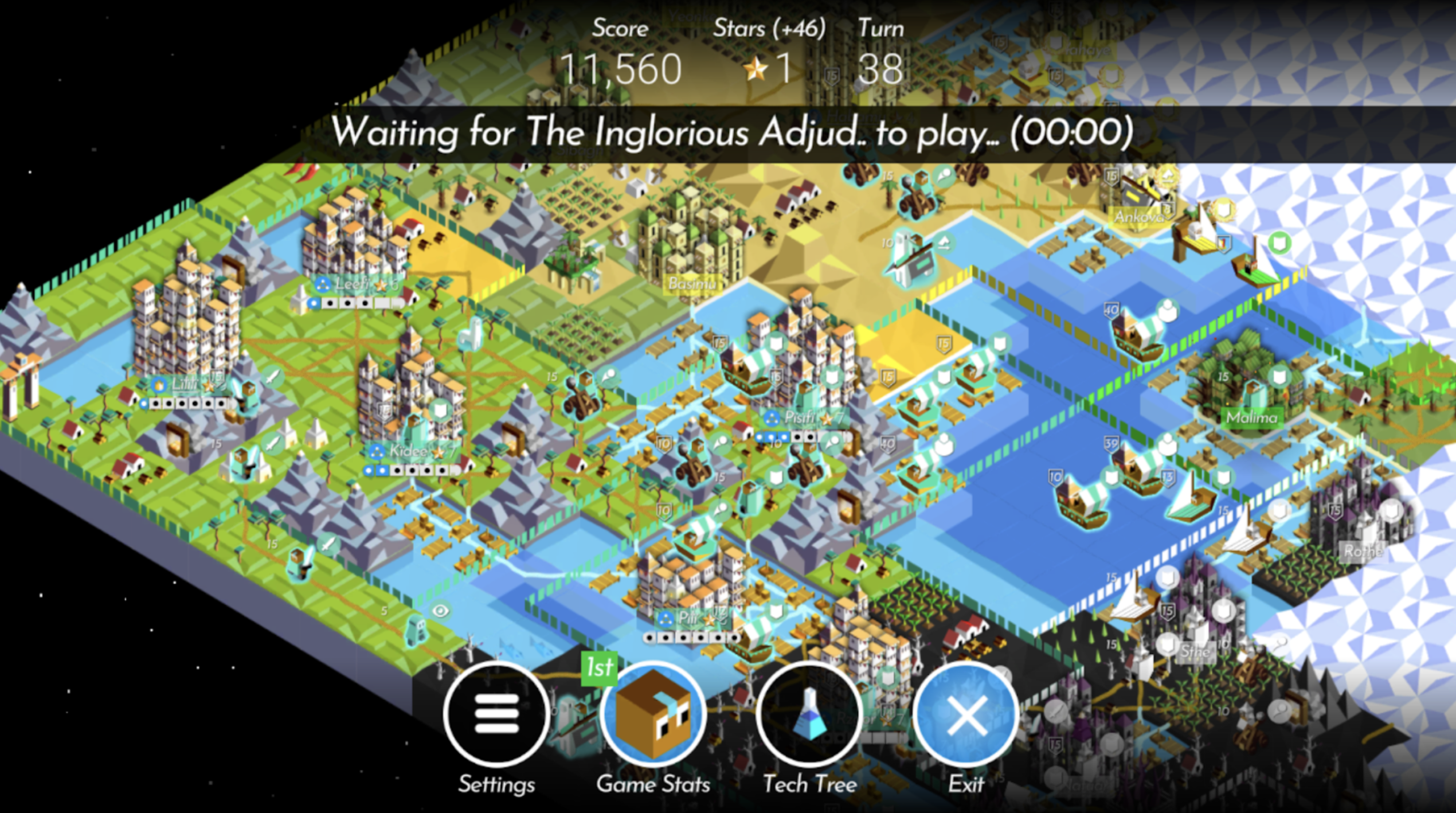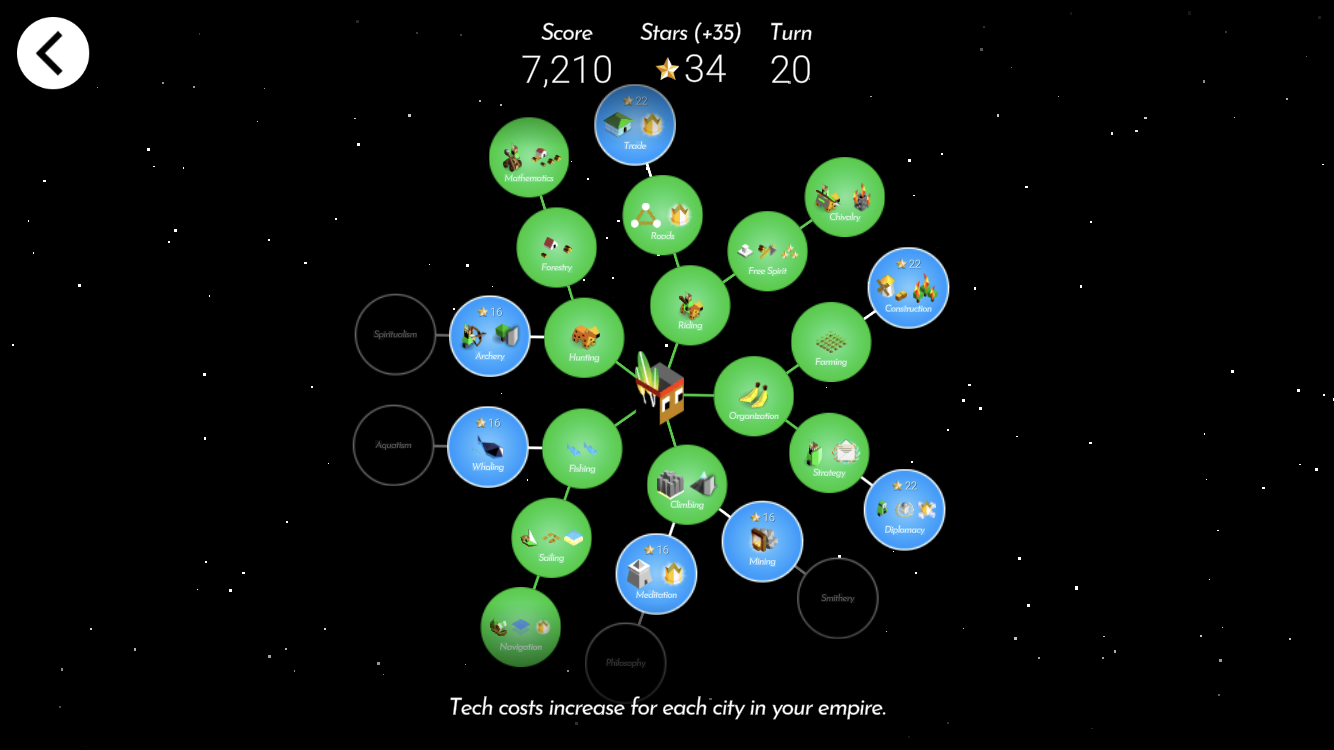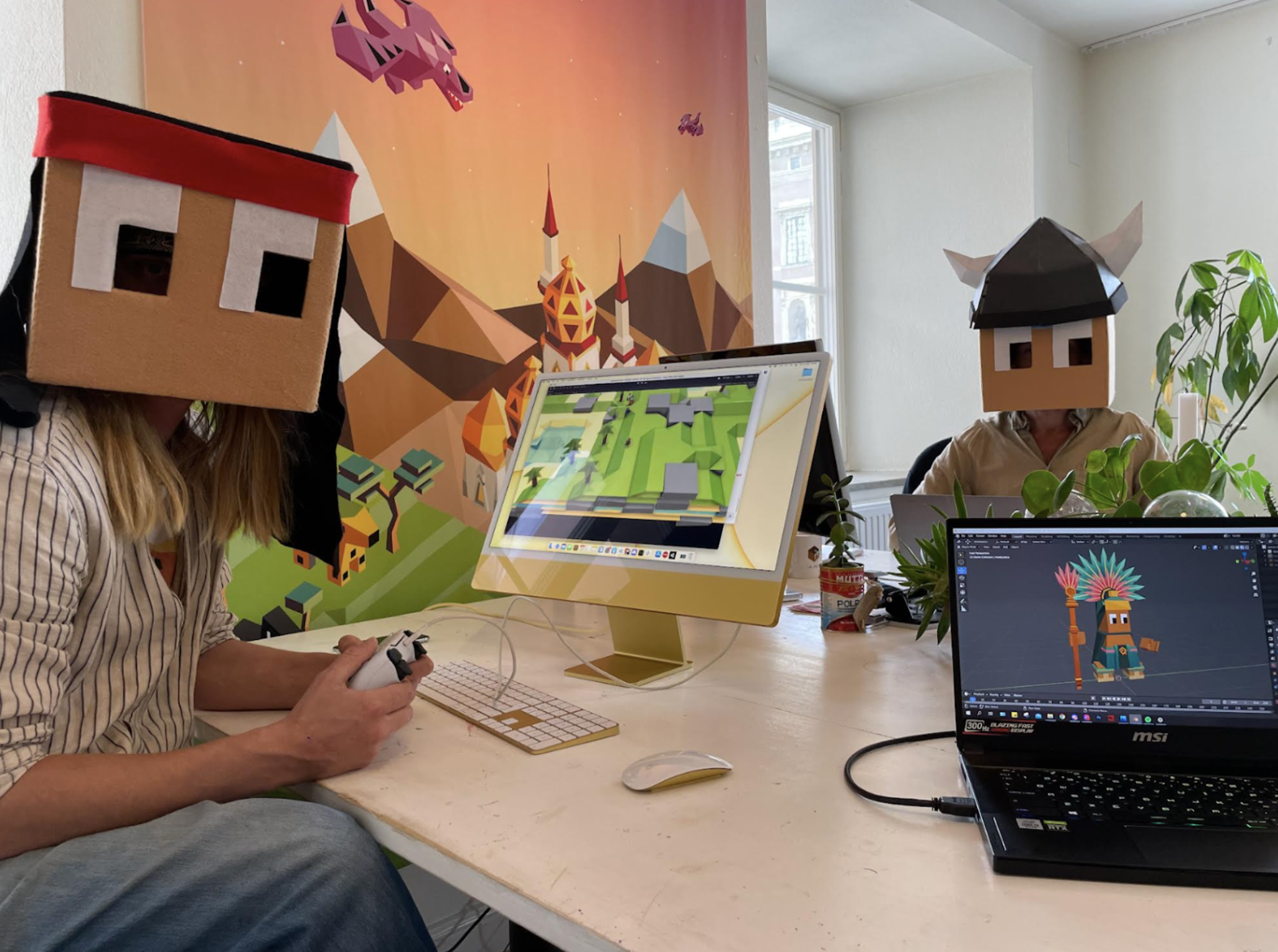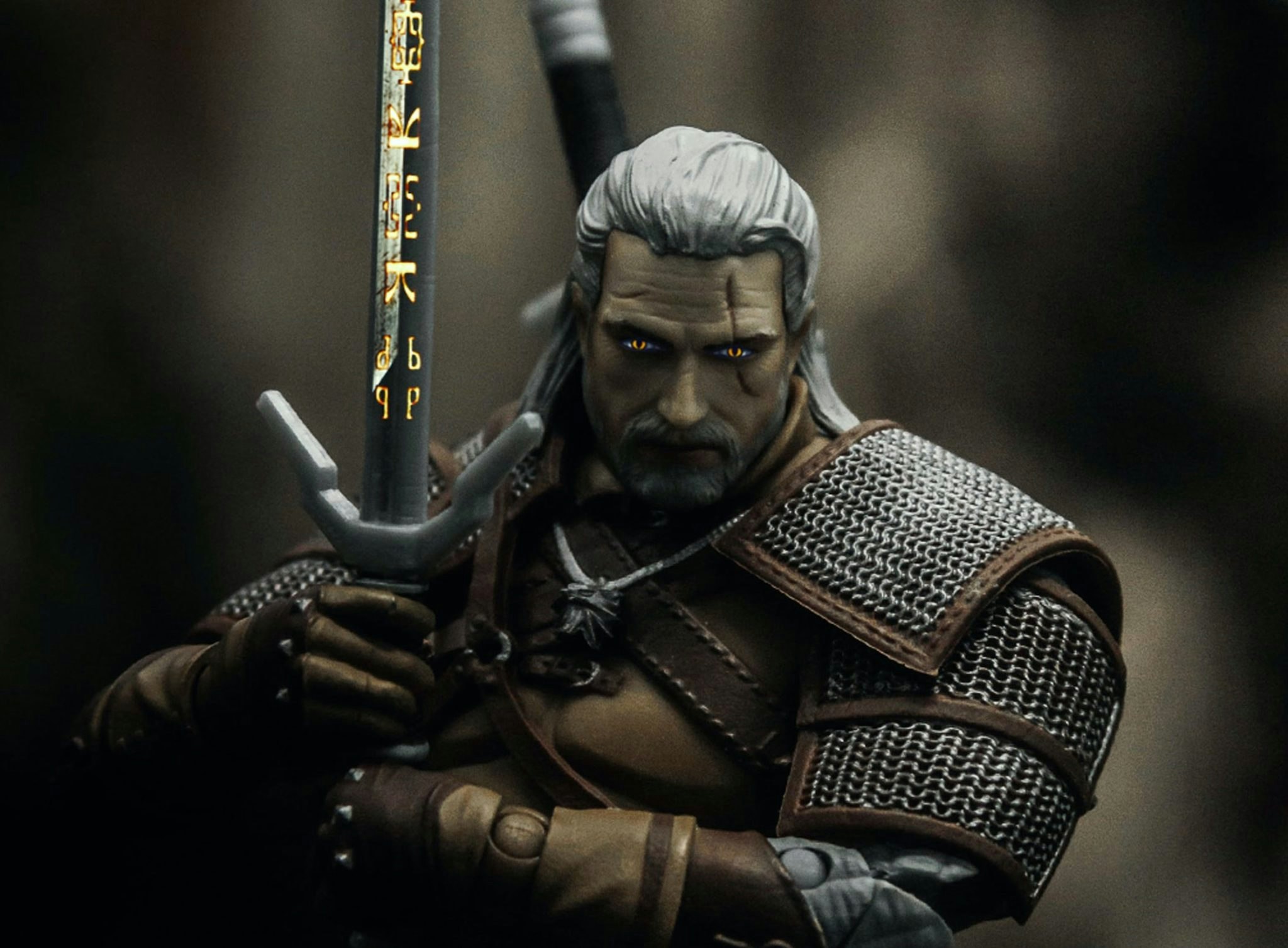Elon Musk is a busy guy. But when he’s not preoccupied with buying Twitter, plotting to colonise Mars or figuring out how to biohack our brains, he still finds time to enjoy a bit of gaming.
And rather than playing any of the big-budget games designed for consoles or top-end PCs, the world’s richest man prefers to spend his time playing a mobile game designed by a tiny studio in Stockholm.
The Battle of Polytopia was one of the first titles to be brought to Tesla’s multimedia system, and Musk has repeatedly spoken about how highly he rates the civilisation-building game (he recently declared it “way better than chess” for strategy game lovers).
And it’s not only Elon. Since launching in 2016, Polytopia has won awards and been downloaded 15m times, and it still has more than 600k monthly active users. To find out what makes it special (and to hear about just how good a player Musk is), Sifted sat down virtually with Felix Ekenstam, the game’s creator and the head of Midjiwan studio.
How to design a smash-hit game
Polytopia is set in a fantasy world inhabited by elves, merpeople and mythical snow spirits — as well as a bunch of human tribes ranging from Romans to Silk Road traders.
The aim of the game is to control as much territory on the map as possible, and eventually take control of your opponent’s capital city. To win, you’ll need to build up a thriving civilisation complete with trading ports, diplomatic embassies and strong armies.
And while that might all sound a bit complex and violent, Polytopia is actually a pretty cute and, of the face of it, simple game. Unlike many civilisation and strategy titles (Ekenstam took a lot of inspiration from the genre classic Civilization), Polytopia doesn’t try to accurately render its soldiers and their battles, opting instead for colourful and blockish graphics.

“I tried to make all the graphics really low poly. They’re almost abstract at points, so you have to imagine stuff,” Ekenstam tells Sifted. “If the graphics are too good and in your face, then you see what you see — you see what’s there. If the graphics are more abstract then you put your own imagination into it and it becomes a personal experience.”
And this philosophy — of removing detail and complexity — is also evident in the gameplay mechanics. While games like Civilization allow you to pass through entire epochs in history, seeing your subjects go from wielding stone tools to laser guns over the course of a game, Polytopia is a much more contained experience.
Players can see all of the game’s possible technologies on a single screen, presenting you with a manageable range of choices for how they want to develop your civilisation.
For Ekenstam, Polytopia’s success as a game owes a lot to this stripped-back presentation of the strategy genre.
“The hardest thing about creating Polytopia was to find that thing, the game, the itch. Like, how does the game become fun? Because it was not originally. It looked like Civilization, but it wasn’t fun,” he remembers. “I restarted a few times, and I think the whole point was boiling down this genre into something progressively smaller and smaller and smaller. It was about trying to find the essence of this kind of game — removing more and more stuff until I find some kind of core.”

Building a business
Polytopia hit the app store in 2016 with “featured” support from Apple, and Ekenstam says he was blown away by the 100k daily downloads he was getting in the first week.
“That launch feature was just absurd,” he says. “Coming from nothing, my target was, ‘If I can get 10k people to play this game, I'm happy.’ That happened in the first hour.”
But it wasn’t until two years later that Polytopia began to really take on a life of its own, when Midjiwan added online multiplayer to the game, allowing people to play against each other. “The multiplayer thing was a really big, big deal for Polytopia,” Ekenstam says.
Today, Polytopia has a thriving community of competitive players who form guilds and organise tournaments via Discord.
“It turns out to be a great competitive game, because it really resembles chess I think, in a lot of ways,” he says. “Because it's so simplified it's kind of possible to just look at the map and understand what's going on and try to predict your opponent's moves and be smart. And if you win, you win because you're good at it: a good player could beat a mediocre player anytime. There is still some randomness to the game but if you're good, you will win.”
The studio now employs a US-based community manager, developers in Poland, creative artists, and a marketing lead in Stockholm, bringing the studio’s current headcount to eight.
The game is still free — but users can pay for extra tribes to play with. Unlocking all the tribes costs $18.88. It’s a refreshing change from the many modern games that repeatedly ask players for in-app purchases and microtransactions, often to the dismay of parents who later find their kids have been spending their hard-earned cash on in-game money.

The Musk factor?
Despite taking pride in Polytopia’s success, Ekenstam is clearly less than happy about his new managerial responsibilities, having originally launched the game himself as an independent developer.
“I never really wanted to grow the team,” he says. “When you start involving other people it becomes really complicated and it takes a lot of time to set up a studio and try to hire people and it's just a lot of things that are not game developing that you have to put your time into.”
Along with hiring staff, marketing is another task that Ekenstam isn’t hugely motivated by: “We didn’t do any for Polytopia, it was all word of mouth.”
And if you’re relying on word of mouth, you’d think you couldn’t ask for much more than the support of a high-profile fan with one of the biggest mouths in the world.
But Ekenstam says he hasn’t experienced a spike in downloads connected to a Musk mention: “I've never seen anything in our stats connected to anything that Elon has said. I'm surprised, I mean, he's one of the biggest influencers in the world.”
The game developer says that he's still enjoyed the experience of coming into the SpaceX founder’s orbit, who he adds is an impressive player on the Polytopia board.
“It's been a very fun thing that he's into the game and it also made me come into contact with him and that's an interesting experience. He reached out to me because he wanted to have the game on Tesla, and it was kind of surreal — he called me one day on the phone, basically,” he says. “It was a good experience. He’s a smart guy and has a lot of interesting thoughts. And he’s also a pretty good Polytopia player.”
Ekenstam is now working on a new title, an action role playing game set in the Polytopia-verse inspired by The Legend of Zelda. “It will probably be ready in 10 years,” he jokes.
If it does anywhere near as well as his first major game, Ekenstam might begrudgingly have to think about growing his team again.


